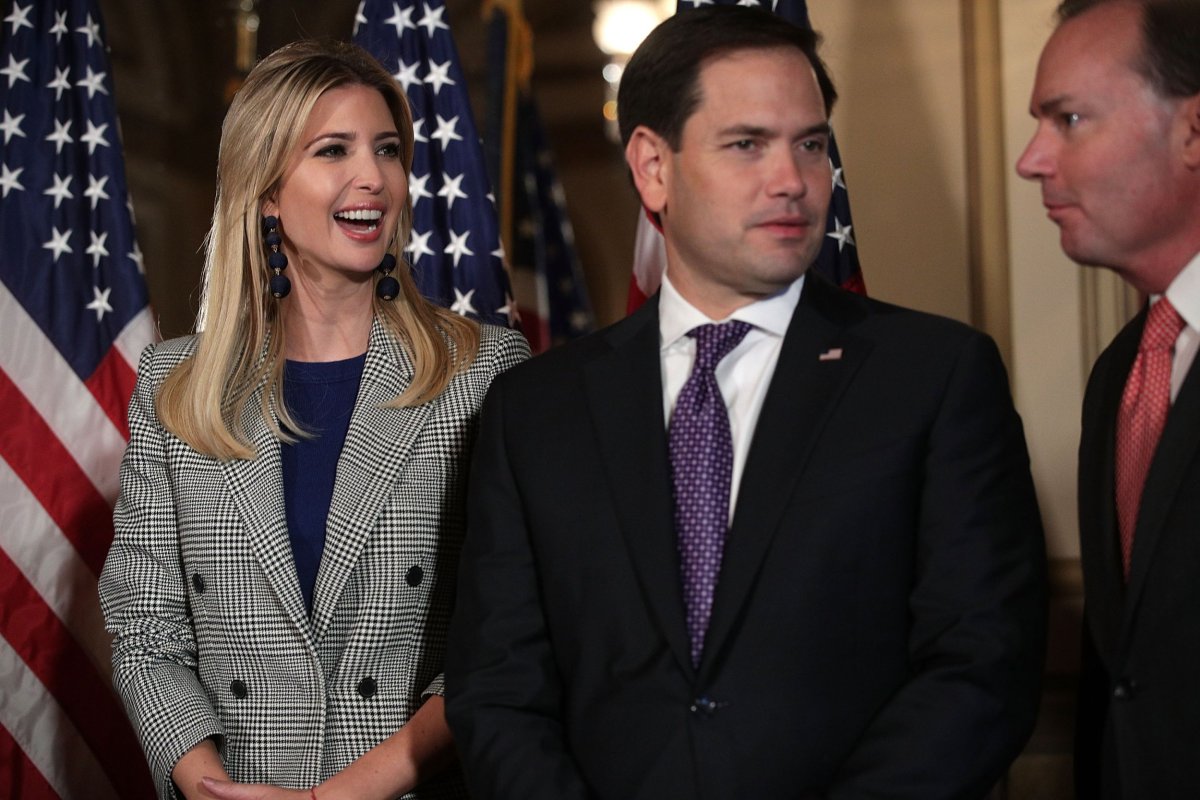Congressional Republicans have long stuck to the party line that their tax cuts, which are set to increase the national debt by $1.9 trillion, will put extra money into the pockets of Americans both directly and through the trickle-down effects of granting corporations huge, permanent breaks. Now, with the forthcoming retirement of House Speaker Paul Ryan and new polls showing that tax cuts aren't popular with midterm voters, that GOP messaging might be starting to crack.
Florida Senator Marco Rubio, a contender for the Republican presidential nomination in 2016, voted with his party for the tax cuts late last year, though he warned that they would not create the dramatic economic growth his party was hoping for. Still, as recently as April 16th, he was happily repeating GOP talking points. "I want to thank you for fighting for the American worker," Rubio said with President Donald Trump and local business leaders at a panel discussion at the time. "And they've been beat up and ignored for far too long. Whether it's taxes, whether it's jobs sent to other countries, this tax reform is about them."
Now, less than two weeks later, he's saying the plan was a handout to large corporations, and did not benefit American taxpayers. In an interview with The Economist published Friday, Rubio said the trickle down economics that the tax plan relied on hadn't worked. "There is still a lot of thinking on the right that if big corporations are happy, they're going to take the money they're saving and reinvest it in American workers," he said. "In fact they bought back shares, a few gave out bonuses; there's no evidence whatsoever that the money's been massively poured back into the American worker."
Rubio said the plan placed value on automation over jobs for American workers. "I have no problem with bringing back American car-manufacturing facilities, but, whether they're American robots or Mexican robots, they're going to be highly automated," he said. "My relatives are firefighters and nurses and teachers and electricians. These are people who are not all that excited about the new economy."
The CBO estimated earlier this month that 43 percent of all economic gains from the tax plan between 2018 and 2028 would go abroad, instead of to Americans. Additional provisions in the tax plan created large subsidies for purchasing machines, encouraging further automation of American jobs.
A recent poll showed the majority of American voters had not noticed changes to their paychecks after the tax plan passed, though in reality many did see a bit more cash. Bi-weekly paychecks for single filers making between $46,000 and $162,000 were estimated to grow by $40 to $190 starting in February because of the tax cuts.

Uncommon Knowledge
Newsweek is committed to challenging conventional wisdom and finding connections in the search for common ground.
Newsweek is committed to challenging conventional wisdom and finding connections in the search for common ground.
About the writer
Nicole Goodkind is a political reporter with a focus on Congress. She previously worked as a reporter for Yahoo Finance, ... Read more
To read how Newsweek uses AI as a newsroom tool, Click here.






